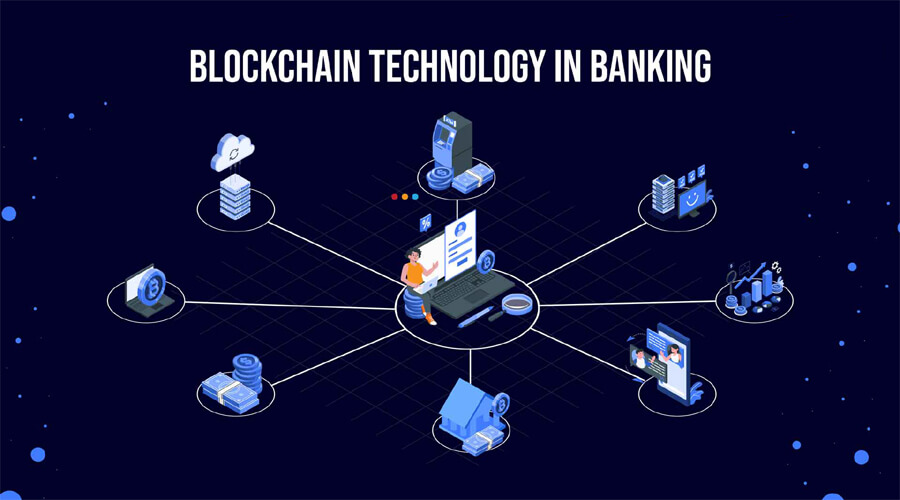In the world of modern finance, blockchain technology has emerged as a disruptive force, poised to redefine traditional banking practices. Originally conceived as the underlying technology for cryptocurrencies like Bitcoin, blockchain has since evolved into a versatile tool with the potential to revolutionize the financial sector. Let’s delve into what blockchain technology in banking entails and the myriad ways it is reshaping the industry.
Unveiling Blockchain Technology:
At its core, blockchain is a distributed ledger technology that records transactions in a manner that is both transparent and highly secure. It operates on a decentralized network of computers, ensuring that no single entity has complete control, and transactions are virtually tamper-proof. Each transaction is bundled into a “block” and linked to the previous one, forming a continuous “chain” of blocks – thus the name “blockchain.”
Key Features of Blockchain in Banking:
1. Impeccable Security:
Blockchain’s decentralized structure guarantees robust security. Transactions are encrypted, and once recorded, they are extremely challenging to alter or delete. This provides an unprecedented level of protection against fraud and unauthorized access.
2. Enhanced Transparency:
Every transaction recorded on the blockchain is visible to all participants in the network, creating unparalleled transparency. This transparency fosters trust among users and reduces the need for intermediaries.
3. Cost Efficiency:
By eliminating intermediaries and automating various processes, blockchain significantly reduces operational costs for banks. This cost-saving potential is especially appealing to financial institutions.
4. Real-time Transactions:
Blockchain enables near-instantaneous cross-border transactions, eliminating the delays associated with traditional banking systems. This speed is a game-changer for global financial services.
Applications of Blockchain Technology in Banking:
1. Smart Contracts:
Smart contracts are agreements that automatically carry out their obligations because they are encoded in code. They eliminate the need for manual intervention by automating procedures including loan origination, trade settlements, and compliance.
2. Cross-border Payments:
Blockchain enables faster and cheaper cross-border transactions by bypassing the traditional correspondent banking system. This is particularly beneficial for international trade and remittances.
3. Identity Verification:
Blockchain can provide a secure and tamper-proof means of verifying customer identities, reducing the risk of identity theft and fraud.
4. Supply Chain Finance:
Banks can use blockchain to track the flow of goods in supply chains, offering financing options based on real-time data. This minimizes risks and enhances the efficiency of supply chain finance.
5. Digital Identity and KYC (Know Your Customer):
Banks can streamline the customer onboarding process by utilizing blockchain for secure identity verification and KYC procedures. This not only reduces administrative burdens but also enhances security.
Challenges and Considerations:
While the potential benefits of blockchain technology in banking are immense, there are challenges to overcome. These include scalability issues, regulatory compliance, and the need for industry-wide standards. Additionally, blockchain’s energy consumption remains a topic of debate.
In conclusion, blockchain technology in banking is poised to transform the financial landscape. Its innovative features, including security, transparency, cost efficiency, and real-time capabilities, are driving banks to explore its myriad applications. As the technology matures and regulatory frameworks evolve, we can expect to see even greater adoption of blockchain in the banking sector, ushering in a new era of financial services.



